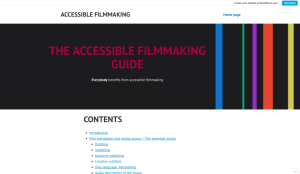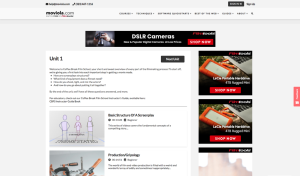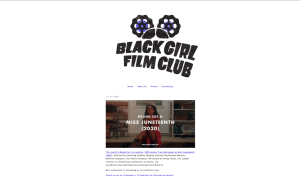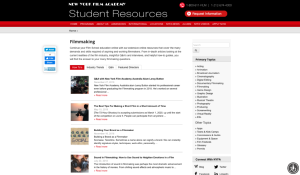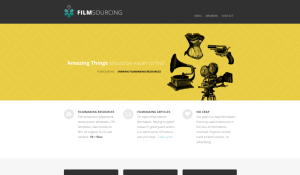General Interest
Back to Top
|
 |
|
Black Perspectives
|
Social studies |
|
Produced by the African American Intellectual History Society, Black Perspectives is a blog amplifying scholarship and writing that "advanc[es] the lives of people of African descent and humanity." This award-winning blog began in 2014, and"rebranded" in 2017. Today, it continues to feature daily content on various topics, from religion to de-colonized history. The blog recently launched a series, "Black Ecologies," that highlights "work from various scholars in Black Studies about the enduring proximity between Black communities and environmental catastrophe, as well as Black peoples' efforts to resist ecocide intellectually, politically, and in practice." The site also includes book reviews (see the Featured Books section), author discussions (see the Author Interviews section), and Roundtables and Resources pages with other educational materials. Tyler D. Parry, a professor of African American Studies at California State University, Fullerton serves as Senior Editor for the blog, which features writing from more than 50 contributors across the country. [EMB] |
|





|
|
 |
|
SCALE Science Education
|
Science |
|
Middle school science teachers looking for curricular materials that align with current Next Generation Science Standards (NGSS) may want to check out SCALE Science Education, an initiative from Stanford University's Graduate School of Education. SCALE has numerous resources for teachers, from project-based curriculums designed for students in grades 6-8, tips on how to best administer assessments of NGSS learning, professional development opportunities for teachers hoping to improve their craft, and a research portfolio on "performance-based learning." SCALE offers several instructional units for 6th, 7th, and 8th grade levels. Units include a comprehensive teacher's guide, handouts and worksheets for students, and supplementary materials like slides and videos. All the teaching materials are available for free download. The Assessment section offers ways to evaluate students' knowledge without resorting to multiple choice tests. Here, visitors will find information on several initiatives, including the Stanford NGSS Assessment Project, Twig, and SPA-LC. The design of SCALE's teaching resources is guided by their goal to achieve "equitable access and outcomes for all students." SCALE is led by its founder and executive director, Raymond L. Pecheone, and receives support from a variety of academic, nonprofit, and research organizations. [AL] |
|





|
|
 |
|
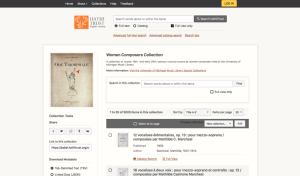 |
|
Hathi Trust: Women Composers Collection
|
Arts |
|
The Hathi Trust Women Composers Collection consists of digitized sheet music for approximately 3,000 musical works by more than 700 women composers. Most date from the 19th- and early 20th-centuries, with a few pieces from the 18th century. Some of the published scores include annotations by the composer, while there are also several hundred in manuscript form. The originals are from the University of Michigan Music Library, which purchased most of the collection in 1980 from a British antiquarian. Visitors can sort the materials by author name, date, or title using the drop-down "Sort by" feature above the listings. Most of the musical compositions featured in the collection are songs and solo piano pieces, although choral, orchestral, dramatic, and chamber music are also present in the collection. About 80 percent of the collection is available full-text through HathiTrust, which means that the music can be downloaded and printed. In addition to being of interest to musicians and music scholars, the covers of many of the pieces are illustrated and some include ornate text, providing examples of 19th- and 20th-century graphic design. [DS] |
|





|
|
 |
|
Bootstrap: Data Science
|
Science |
|
Math, science, and technology teachers may want to bookmark this website as they begin to plan their fall curriculum. Bootstrap curates free lessons on various STEM subjects: algebra, data science, physics, and programming. Since its launch, Bootstrap's curriculum has reached more than 25,000 students. On the Courses page, readers will find a summary of the five available courses (including the recommended age level). After clicking on a course, readers will find links to individual lesson plans within that course (including content standards, materials, and supplemental resources). This design allows educators to use the entire curricula or mix and match lesson plans as a classroom supplement. For even more insights on the project, readers may want to explore the Blog or Workshops pages. These workshops take place across the country, though recent workshops have been cancelled due to COVID-19. A project of Brown University, Bootstrap is directed by a group of researchers and professors and receives support from the National Science Foundation, CSforALL Consortium, and CS4RI. [EMB] |
|





|
|






